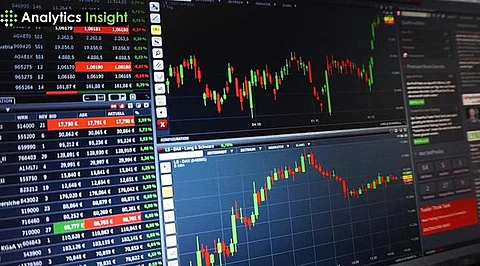

US stocks traded mixed on Tuesday as pressure in big technology names offset gains across most other sectors. Investors weighed Alphabet Inc.’s advance against a sharp pullback in NVIDIA Corp. while they parsed delayed US economic data for fresh clues on the Federal Reserve’s next move.
The S&P 500 hovered near flat levels late morning in New York as traders rotated beneath the surface. Gains in eight of the index’s sectors balanced losses in information technology, leaving the broader US stock market without a clear direction. The Cboe Volatility Index held near 20, signaling slightly elevated uncertainty compared with earlier this month.
The NASDAQ 100 slipped after falling as much as 1.3% earlier in the session, while the Dow Jones Industrial Average posted modest gains. An equal-weighted version of the S&P 500 rose around 0.4%, showing broader participation beyond the largest index constituents. That move suggested investors continued to add exposure outside the megacap leaders that drove much of the year’s earlier advance.
Alphabet shares climbed after a report that Meta Platforms is in talks to spend billions of dollars on Google’s AI chips over the coming years. The move pushed the company closer to a $4 trillion valuation and reinforced expectations that Google will compete more aggressively in AI hardware.
NVIDIA shares dropped after the headlines, extending the recent weakness that followed its latest earnings report. Analysts noted that any credible challenge to NVIDIA’s grip on AI data-center spending could limit its ability to reclaim leadership within the so-called Magnificent Seven group of megacap tech stocks.
Market strategists also pointed to stretched AI valuations and recent volatility in chipmakers. They argued that NVIDIA’s ongoing decline, combined with any pause in Alphabet’s rally, could pressure the wider tech sector before year-end. Other chip names, including Advanced Micro Devices, also traded lower as investors reassessed the sector’s near-term growth expectations.
Traders also worked through long-awaited US data that had been delayed by earlier government disruptions. September retail sales rose modestly, suggesting consumers slowed spending after several strong months. Meanwhile, the producer price index increased 0.3% in September, matching economist forecasts and reflecting higher energy and food costs.
Portfolio managers said the in-line inflation reading supports expectations for another Fed rate cut in December, even though policymakers now face a sparse data calendar ahead of that meeting. Money markets priced roughly an 80% chance of a quarter-point reduction next month as investors focused on softer labor and spending signals
Consumer confidence data showed the sharpest drop in seven months, highlighting renewed anxiety around the job market and economic outlook. At the same time, some analysts argued that price adjustments to higher tariffs may be nearing completion, which could reduce inflation pressure next year.
Stock-specific moves remained pronounced. Kohl’s surged after it lifted full-year guidance for a second straight quarter, while Abercrombie & Fitch rallied after raising long-term sales and earnings targets. Defense contractor Amentum rose on stronger quarterly revenue, whereas Oracle declined after an analyst downgrade citing balance-sheet concerns.
In other markets, the dollar weakened against major peers and Treasury yields edged lower as private payrolls data signaled cooling hiring momentum. Bitcoin traded below $88,000, and US crude oil prices fell more than 2%, reflecting reports of progress toward a revised peace framework in Ukraine.
Also Read: Alphabet Stocks Report a Record High on Gemini 3 Launch, AI Momentum Surges
Join our WhatsApp Channel to get the latest news, exclusives and videos on WhatsApp
_____________
Disclaimer: Analytics Insight does not provide financial advice or guidance on cryptocurrencies and stocks. Also note that the cryptocurrencies mentioned/listed on the website could potentially be risky, i.e. designed to induce you to invest financial resources that may be lost forever and not be recoverable once investments are made. This article is provided for informational purposes and does not constitute investment advice. You are responsible for conducting your own research (DYOR) before making any investments. Read more about the financial risks involved here.
